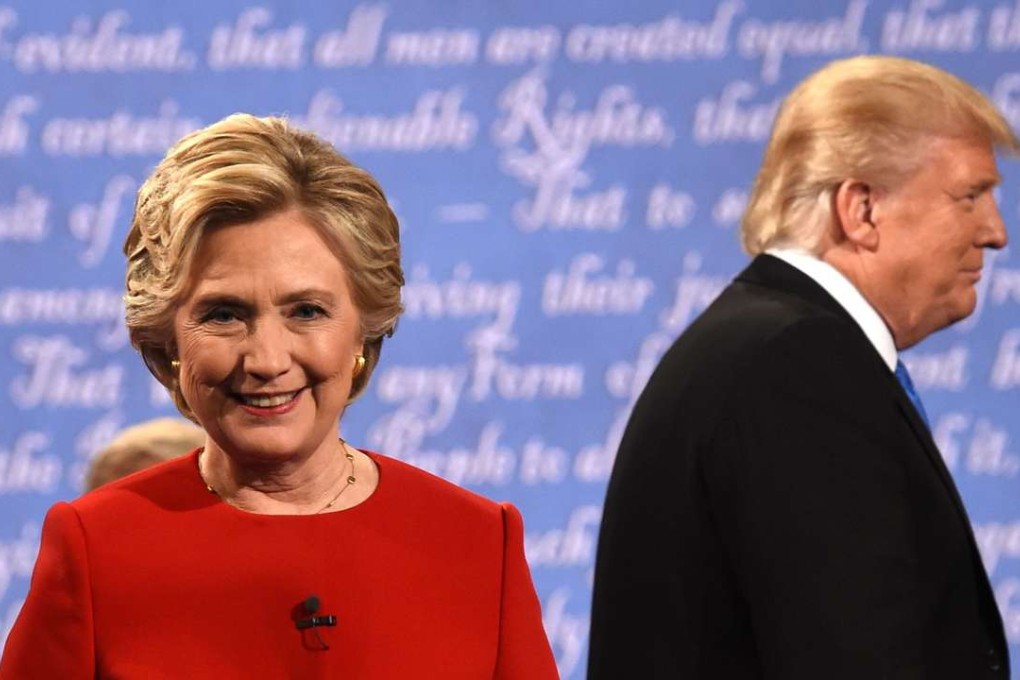Cybersecurity, terrorism, trade and nuclear threats ... why US presidential debate couldn’t ignore China
Donald Trump, Hillary Clinton mention ‘China’ 12 times in face-off on Monday night

China featured much more prominently in first US presidential debate between Donald Trump and Hillary Clinton compared with the last two elections.
It wasn’t long after Republican candidate Trump began to talk before he started attacking China for causing the United States’ economic woes.
“You look at what China’s doing to our country in terms of making our product, they’re devaluing their currency and there’s nobody in our government to fight them ... They’re using our country as a piggy bank to rebuild China, and many other countries are doing the same thing,” Trump said.
While usage of the word “China” was mostly restricted to discussions about trade and debt in the US’ previous presidential election debates, this was expanded to areas including cybersecurity, terrorism and nuclear threats during the debate that took place on Monday night, US time.
In Monday’s debate, both Trump and Democrat candidate Hillary Clinton mentioned China 12 times on topics covering trade, the internet, Iran, North Korea as well as US infrastructure.